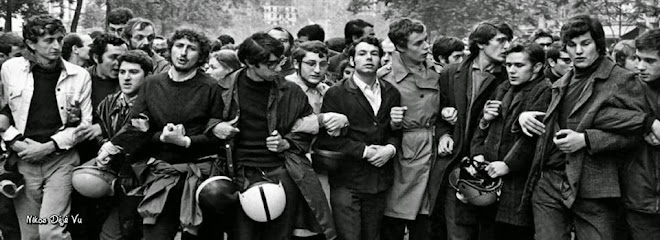Nikos Deja Vu - Melina Mercouri (1920-1994) Our Melina!
A 1996 Documentary
Melina Mercouri
Melina Mercouri (Greek: Μελίνα Μερκούρη), born as Maria Amalia Mercouri (18 October 1920 -- 6 March 1994) was a Greek actress, singer and politician.
She became well-known to international audiences when she starred in Never on Sunday (1960), in which Dassin was the director and co-star. For this film, Mercouri received the Best Actress Award at the 1960 Cannes Film Festival and was nominated for the Academy Award for Best Actress and the BAFTA Award for Best Actress in a Leading Role.
After her first major international success, she went on to star in Phaedra (1962), for which she was nominated again for the BAFTA Award and the Golden Globe Award for Best Actress in Motion Picture Drama. The recognition of her acting talent did not stop though, as her role in Topkapi (1964) granted her one more nomination, this time for the Golden Globe Award for Best Actress in Motion Picture Musical or Comedy. Mercouri worked with other famous directors as well, such as Joseph Losey, Vittorio De Sica, Ronald Neame, Carl Foreman, Norman Jewison, and starred in films like Spanish language The Uninhibited by Juan Antonio Bardem. She continued her stage career in the Greek production of Tennessee Williams's Sweet Bird of Youth (1960), under the direction of Karolos Koun. In 1967, she played the leading role in Illya Darling (from 11 April 1967 to 13 January 1968) at Broadway, for which she was nominated for the Tony Award for Best Performance by a Leading Actress in a Musical, while her performance in Promise at Dawn (1970) gave her another Golden Globe Award nomination.
Activism against the Greek Junta
At the time of the coup d'e'tat in Greece by a group of colonels of the Greek military on 21 April 1967, she was in the United States, playing in Illya Darling. She immediately joined the struggle against the Greek Military Junta and started an international campaign, travelling all over the world to inform the public and contribute to the isolation and fall of the colonels. As a result, the dictatorial regime revoked her Greek citizenship and confiscated her property. When her citizenship was taken away, she said: "I was born a Greek and I will die a Greek. Mr. Pattakos (one of the colonels) was born a fascist and he will die a fascist", a phrase which represented her love of Greece and democracy.
There were terrorist attempts against her, including an assassination attempt in Genoa, Italy. However, she did not stop her fight against the dictatorship with interviews, concerts marches and speeches given all around the world. During those years she recorded four records in France, one with Greek lyrics and the other three with French lyrics, all created by Greek musicians. They were highly popular, and since being remastered and reissued, are still critically acclaimed.
Minister for Culture: 1981--1994
As Minister for Culture, Mercouri took advantage of her fame abroad and got in contact with great European leaders in order to promote Greece. She strongly advocated the return to Athens of the Parthenon Marbles, that were removed from Parthenon and other buildings on the Acropolis of Athens by Thomas Bruce, 7th Earl of Elgin, and are now part of the British Museum collection in London. In anticipation of the return of the marbles, she held an international competition for the construction of the New Acropolis Museum, designated to display them and finally established in 2008.
One of her greatest achievements was the establishment of the institution of the European Capital of Culture within the framework of cultural policy of the European Union, that she had conceived and proposed in 1983, with Athens inaugurating this institution being the first title-holder in 1985, while she was a devoted supporter of the Athens bid to host the Centennial Olympic Games. In 1983, during the first Greek presidency of the Council of the European Union, Mercouri invited the Ministers for Culture of the other nine member states of the European Union at Zappeion, in order to increase the people's cultural awareness, since there was not any reference to cultural questions in the Treaty of Rome, which led to the establishment of formal sessions between the Ministers of Culture of the European Union. During the second presidency of Greece in 1988, she supported the cooperation between Eastern Europe and the European Union, which was finally implemented one year later with the celebration of the Month of Culture in Eastern countries.
Melina Mercouri died on 6 March 1994 at Memorial Sloan-Kettering Cancer Center, New York City, from lung cancer, aged 73. She was survived by her husband, Jules Dassin. She received a state funeral with Prime Minister's honors at the First Cemetery of Athens four days later. Thousands attended her funeral....
Nikos Deja Vu
http://n1k0s.multiply.com



No comments:
Post a Comment